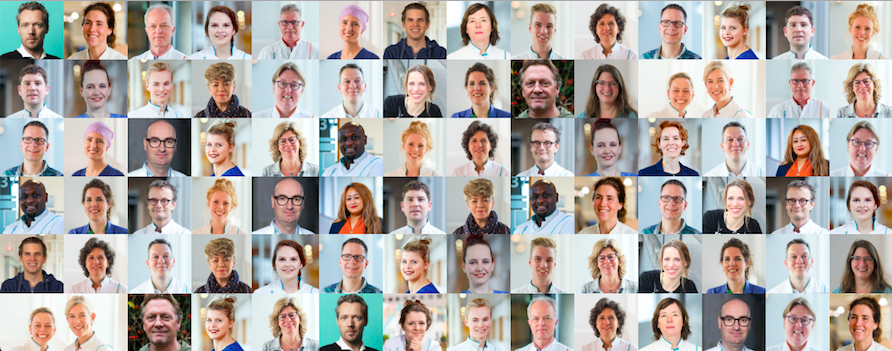PhD candidate ‘Lamin deregulation and nuclear envelope rupture in cancer invasion and metastasis in vivo’
PhD candidate ‘Lamin deregulation and nuclear envelope rupture in cancer invasion and metastasis in vivo’
You cannot apply for this job anymore (deadline was 16 May 2018).
Browse the current job offers or choose an item in the top navigation above.
Job description
In many solid tumors, metastatic progression and poor outcome associate with deregulated nuclear envelope composition, including up- or downregulation of A- and B-type lamins. We have previously identified the cell nucleus as rate-limiting cell organelle that determines the efficacy of tumor cell invasion in vitro, and have mapped lamin A/C and lamin B2 as key regulators of nuclear deformability during altered 3D tissue invasion. Strong nuclear deformation in vitro increases the risk of nuclear envelope (NE) rupture, followed by DNA damage and even fragmentation of the nucleus, and lamin deregulation contributes thus to nuclear damage.
The aim of this project is to test whether and how lamin deregulation contributes to metastatic disease progression in the living organism. Lamin downregulation in particular could enhance cell deformability but also vulnerability of nuclei and DNA damage, thereby directing invasion modes and metastatic efficacy. Using defined solid tumor models of melanoma, sarcoma and breast cancer in vitro and in living mice, the project aims to address the following questions: (1) How are increased or decreased lamin expression levels associated with successful tissue invasion, systemic dissemination and formation of distant metastases? (2) What is the relevance of increased or decreased lamin levels on NE rupture, survival and DNA damage during metastatic progression?
The techniques used in this project comprise the generation and characterization of tumor cell lines of specific lamin expression levels in vitro, intravital tumor imaging in mice by high resolution multiphoton microscopy, and histological analysis of tumor patient samples.
Specifications
- max. 36 hours per week
- Nijmegen View on Google Maps
Requirements
The candidate should have a master's degree (or equivalent) in the field of molecular life sciences and a strong interest in studying processes involved in cancer progression.
- Background in molecular cell biology;
- Willingness / have experience in working with laboratory animals;
- High interest and perseverance for mouse intravital microscopic imaging;
- Completed Article 9 or equivalent (permission to work with laboratory animals) is of advantage;
- Experience in molecular and cellular techniques, cell culture and microscopy;
- Motivation, initiative and ambition to publish in high-impact journals;
- Able to work both independently and in a multidisciplinary team;
- Excellent communication skills, contributing to a pleasant working atmosphere;
- High level of proficiency in English;
- You recognise yourself in the Radboud way of working.
Conditions of employment
Fixed-term contract: 4 years.
Scale 10A: max € 40814 gross per year at full employment (incl. vacation bonus and end of year payments).
Expected start date is July to November 2018.
Read more about the Radboudumc employment conditions.
Employer
Radboudumc (university medical center)
Radboudumc strives to be a leading developer of sustainable, innovative and affordable healthcare to improve the health and wellbeing of people and society in the Netherlands and beyond. This is the core of our mission: To have a significant impact on healthcare. To get a better picture of what this entails, check out our strategy film.
Our key strength is medical life-sciences and clinical practice, with an impressive infrastructure comprising state-of-the-art technology platforms and (translational) research facilities. The Radboudumc is therefore uniquely positioned in the emerging Euregio and Dutch healthcare infrastructure to play a leading role in the new healthcare paradigm of prediction, prevention and personalised medicine.
The Radboudumc focuses on scientific health challenges of today, with an eye on emerging diseases of the future.
Read more about what it means to work at Radboudumc and how you can do your part.
Department
The research project will be conducted in the Cell Dynamics group of the Department of Cell Biology, as well as the Preclinical Imaging Center (PRIME), and the Microscopic Imaging Center (MIC), located in immediate vicinity within the Radboud University Medical Centre, Nijmegen, The Netherlands. The candidate will join the PhD program of the Radboud Institute for Molecular Life Sciences (RIMLS).
Read more about what it means to work at Radboudumc and how you can do your part.
Specifications
- PhD
- Natural sciences; Health
- max. 36 hours per week
- University graduate
:fill(white)/logos/umcr-en-wide.png)
